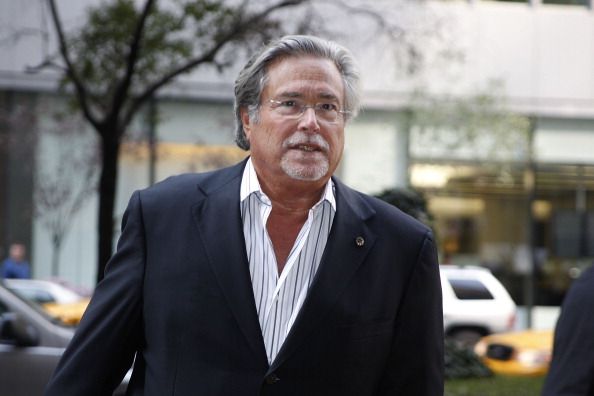Banks to sell the shares on the stock exchange. Arison received a year’s supervision to decide when to start selling the shares and will have to complete the sale within four years from that moment.
Shari Arison, controlling shareholder of Bank Hapoalim is liquidating her holdings in Israel. The richest woman in Israel announced yesterday that the company Arison Investments, through which she controls the bank, received approval from the Supervisor of Banks to sell the shares on the stock exchange.
Will you offer us a hand? Every gift, regardless of size, fuels our future.
Your critical contribution enables us to maintain our independence from shareholders or wealthy owners, allowing us to keep up reporting without bias. It means we can continue to make Jewish Business News available to everyone.
You can support us for as little as $1 via PayPal at office@jewishbusinessnews.com.
Thank you.
The Bank of Israel, the country’s central bank whose approval was needed for the process, granted Hapoalim a one-year deadline to set a date to begin exercising the shares, and a total of four years — with the option of a two-year extension — to complete the sale.
The sale will be completed in 5-7 years, but Arison will cease to be a controlling shareholder immediately and its directors Efrat Peled, Ido Stern, and Meir Wietchner will announce an end to their term.
Bank Hapoalim is valued at around NIS 36 billion ($10 billion) and Arison’s stake of 20% is worth NIS 7 billion ($1.93 billion). Arison’s total profit is $ 1.7 billion, or NIS 6.1 billion.
The bank was founded by in 1921 by the Histadrut, the Israeli trade union congress and the Zionist Organisation. between 1983 – 1996, the bank was nationalized following the Bank Stock Crisis. In 1996 it was sold to a group of investors and the Dankner family led by Ted Arison, Shari’s father who acquired control of the bank (43%) for $ 1.36 billion reflecting a value of $ 3.2 billion.
Today the bank is traded at a value of NIS 36 billion ($10 billion). Over the years, Hapoalim distributed dividends totaling $3.5 billion.
In a statement, Arison said “I had the privilege of being the controlling shareholder at the bank for the last 21 years. I believe in Bank Hapoalim and want to thank the board members, the management, the generations of workers, and the loyal customers. I am convinced that Bank Hapoalim, one of the pillars of the Israeli economy, will continue to operate according to the vision of free finance, growth, expansion and loyal service to all its customers.”
The announcement of the separation from the workers comes after last month Arison sold the controlling interest in real estate and infrastructure company Shikun Ovdim to American businessman Nati Sayidoff for NIS 1.1 billion – a NIS 200 million discount on the market value of the shares.
In addition, Arison put on its shelf the additional holdings in Israel – Salt Industries, which it acquired from the Dankner family. In other words, Arison is liquidating its business in Israel and strives to remain with its holdings in the American shipping company Carnival Cruise, which is controlled by her brother Mickey Arison.
The more precise explanation appears to have been found in the many negative headlines surrounding Arison recently because of the international investigations in which Bank Hapoalim and Shikun Ovdim are immersed.
The affair of the tax evasion in which Bank Hapoalim is complicated is far from over, and the Housing and Construction bribery affair is in a similar situation, and it also brought Arison herself, together with right-hander Efrat Peled, to the interrogation room. The two were investigated with caution. Arison is not involved in running its business.
The negative headlines were the straw that broke the camel’s back, but they alone are not enough reason to say goodbye to Arison’s most significant holding in Israel.
Another reason is the failure of Arison’s contacts with a group of three American entities to sell 50% of Arison Investments – that is, to sell them 10% of Bank Hapoalim. In September 2017, Arison Investments announced that the controlling shareholder reached an agreement that it would sell 50% of the company to the foreign entities, but in the end the deal did not materialize.
The failure of the negotiations stems from the lack of clarity imposed by the tax evasion affair on the Bank and the uncertainty regarding its implications and potential harm. The Americans sought to hedge the risk in the face of this situation, but were met with the refusal of Arison, who brought the talks to a standstill.





